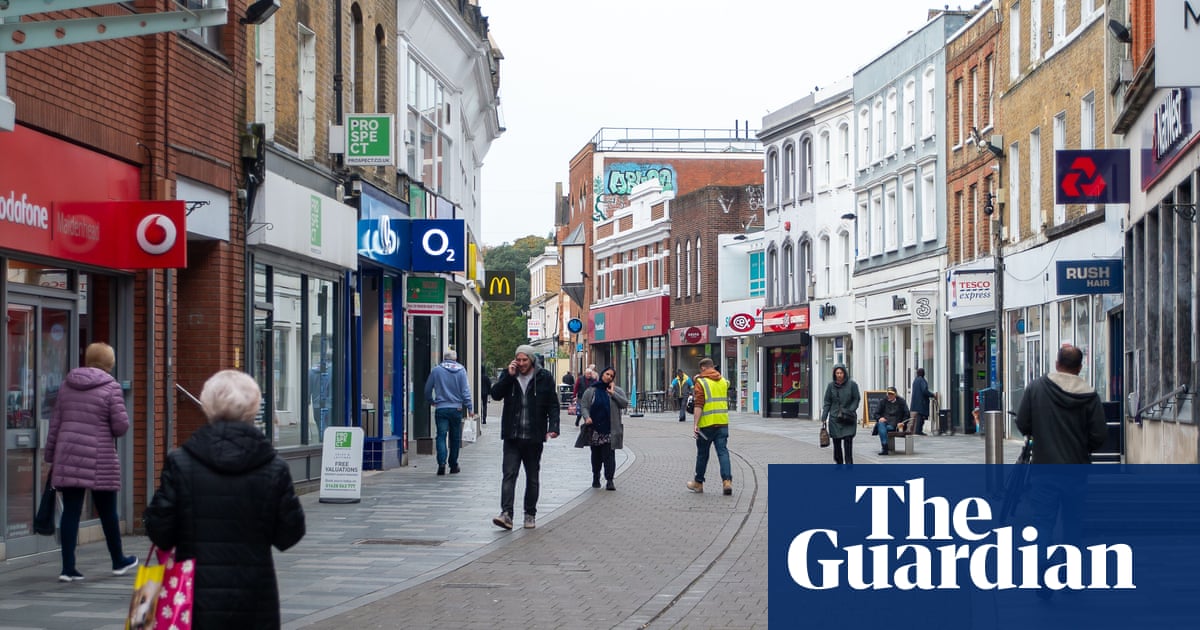
Fears that the British economy is already in recession after a slump in retail sales last month triggered heavy selling of the pound on international money markets taking it to a 37-year low against the dollar.
With average UK wages continuing to fall behind rising prices and the Bank of England expected to push up interest rates next week, sterling fell by more than 1% against the US currency to $1.135, its lowest since 1985.
On the 30th anniversary of Black Wednesday, when the UK crashed out of the European exchange rate mechanism, the pound also hit a 17-month low against the euro, with €1 worth 87.66p.
The FTSE 100 slid 0.3% to 7,258 points, down from 7,550 in August. Shares on European exchanges also tumbled, led by a 1.7% fall in the German Dax, while the opening of trading on Wall Street was marred by a warning overnight from delivery company FedEx of a downturn in traffic that prompted a widespread sell-off.
A report from the World Bank added to the gloomy prognosis for the UK after it said rising interest rates could push the global economy into a recession next year, badly affecting nations such as the UK that depend on revenues from trade.
The worsening global outlook came as the latest official data released on Friday morning showed cash-strapped consumers cut back on spending by more than expected in August, when retail sales volumes in Great Britain fell by 1.6%. Economists had predicted a more modest fall of 0.5%.
The fall in sales last month was broad-based, with petrol stations, supermarkets, clothing and furniture stores all experiencing a drop, the Office for National Statistics said.
The last time this happened was in July 2021, when all legal Covid restrictions on hospitality were lifted and people headed out to bars and restaurants.
The ONS said “rising prices and cost of living” were hitting retail sales in Great Britain, and economists warned the signs were there of an economy already in recession.
Olivia Cross, an economist at the consultancy Capital Economics, said that while she expected the UK recession would be shorter and milder after the government’s £150bn energy price freeze plan, all the indicators showed an economic contraction had already started.
She said: “The 1.6% drop in retail sales volumes in August supports our view that the economy is already in recession. Retail sales will probably continue to struggle as the cost of living crisis hits harder in the coming months. But nonetheless the Bank of England will still have to raise interest rates aggressively.”
Capital Economics said the extra £150bn injected into the economy will force the Bank to add another one percentage point to interest rates from its previous estimate, meaning it expects the Bank’s base rate to jump from the current level of 1.75% to 4%, adding more pain for those with mortgages.
Martin Beck, the chief economic adviser to the EY Item Club, said: “Real household incomes are still on course for a significant fall over the next 12 months or so. And with unemployment likely to rise, if modestly by the standards of past downturns, and the geopolitical outlook also full of uncertainties, confidence is unlikely to see much of a revival.
“So, the recession which retailers currently find themselves in is likely to persist through the rest of this year and into 2023.”
To emphasise the extent of the downturn, online sales dropped to 25.7% of all sales in August 2022 from 26.3% in July 2022; although transactions over the web remain significantly above pre-coronavirus levels of 19.8%.
“Shoppers are simply buying less to offset price increases,” said Lisa Hooker, the industry leader for consumer markets at PwC. She said this was a worry for retailers as they approached the crucial Christmas shopping period.
She added: “As we approach the critical ‘golden quarter’ in the run-up to Christmas, retailers will be looking with anticipation to the outcome of next week’s mini-budget.
The World Bank warned the world may be edging toward a global recession as central banks raise interest rates to combat persistent inflation.
The three largest economies, – the US, China and the eurozone – have been slowing sharply, and even a “moderate hit to the global economy over the next year could tip it into recession”, the bank said in a study.
It questioned the ratcheting up of interest by the US, eurozone and UK, which it said would add massive costs to financing the debts of developing world countries.
It said a “devastating” recession next year was possible if policymakers raise interest rates too high over the months ahead and cause panic financial markets.












